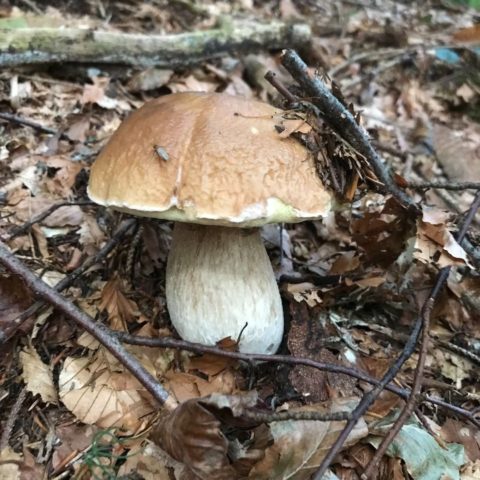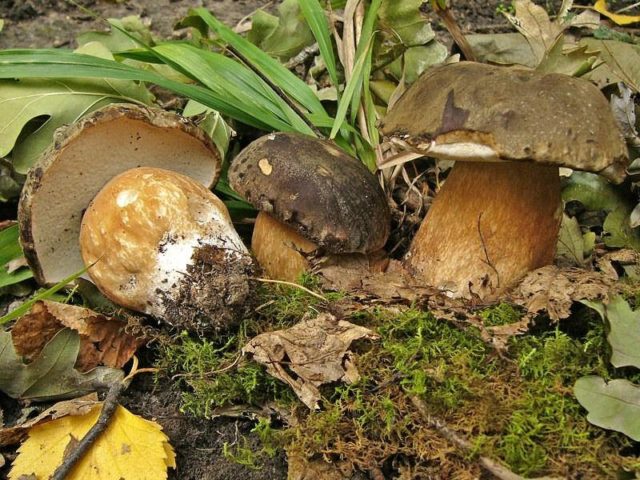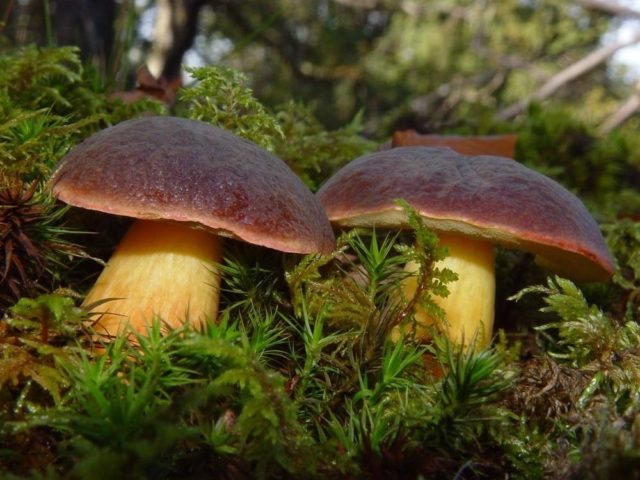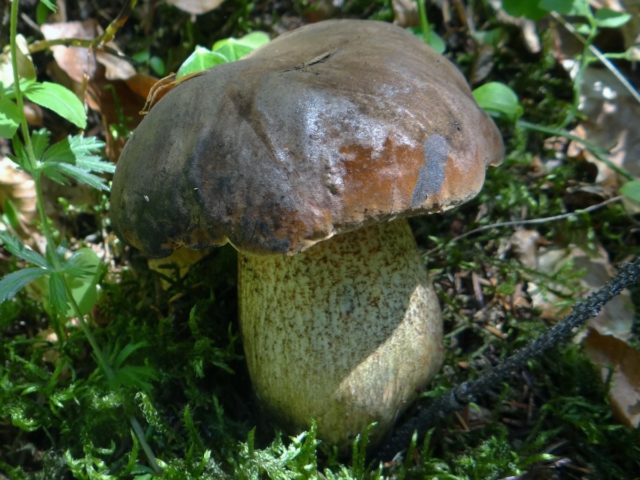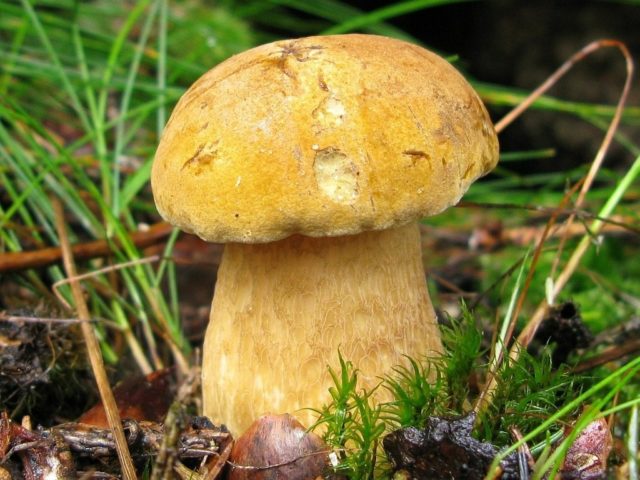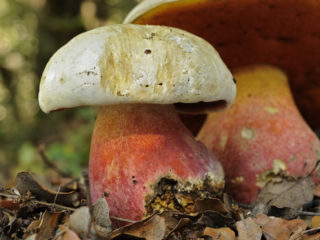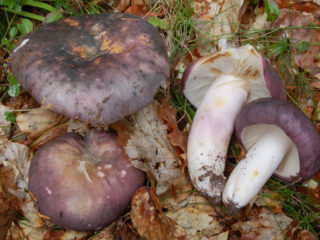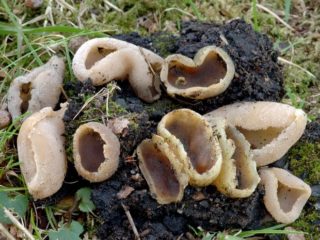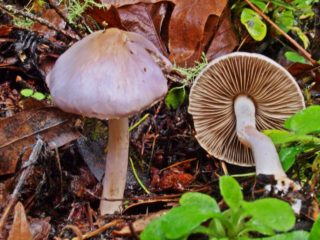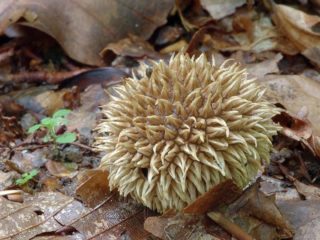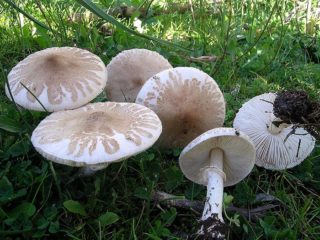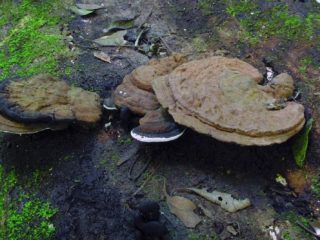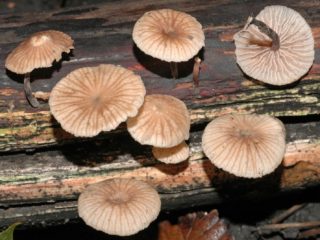Content
The semi-bronze boletus is a rare mushroom with autumn fruiting. To find him in the forest, you should familiarize yourself with false doubles, study the features of his appearance.
What semi-bronze pains look like
A mushroom with a large cap, reaching up to 17-20 cm in diameter and up to 4 cm thick. In young painters, it is convex, closer in shape to a ball, but as the fruiting body grows, it straightens.
The color of the cap is gray-brown; in adults, yellowish spots appear on it. In dry hot weather, it becomes cracked.
On the underside of the cap, the tubular layer has a white color with a grayish tint. In adult representatives, it changes its color to olive green. The tubules are easily separated from the hat pulp. Their length varies between 20-40 mm.
The mushroom rises 12 cm above the ground, the leg reaches 40 mm in thickness. It is dense, thick, outwardly similar to a club or tuber, has a mesh pattern. As it grows, the stem becomes more cylindrical, with a wrinkled surface, pinkish-beige, and then olive-white in color.
Where semi-bronze pains grow
On the territory of the Russian Federation, pain is rare. The main place of its growth is the southern regions, where a predominantly hot climate with a large amount of precipitation. Semi-bronze boletus is more common in moist soils rich in humus.
Fruit bodies are harvested in mixed forests, where oak or beech, pine trees grow. You can find both single semi-bronze bolts and small groups of 2-3 representatives.
Is it possible to eat semi-bronze pains
The mushroom is considered edible. It is actively harvested and eaten in the Mediterranean.
Taste qualities of a semi-bronze bolt
The mushroom belongs to delicacies. Gourmets appreciate it for its mild, pleasant taste. According to the comparative characteristics, the semi-bronze ache is more superior in flavor saturation and brightness to the porcini mushroom. The smell of the delicacy is weak, it appears after cooking. The aroma is well felt if the fruit body is dried.
False doubles
The semi-bronze bolt has no exact counterparts. It can be confused with other fruiting bodies in appearance.
Looks like a half-bronze ache polish mushroom: adults of the species have the same cylindrical stem and cushion-shaped cap of chocolate or chestnut shades.
To distinguish them, it is necessary to examine the fruit body: in the Polish species, the pulp is white, quickly turns blue under the influence of oxygen.
You can confuse a half-bronze pain with boletus bronze... That one is distinguished by a hat of a darker color and the absence of a mesh pattern on the leg.
It should be distinguished from pain gall fungus... Gorchak has a similar structure, therefore, in order to recognize it, it is necessary to examine the leg. In the gall fungus, it has vascular veins.
Collection rules
When choosing a place, you should explore the mixed forests by visiting them in August-September. The collection point should be located far from highways and industrial facilities.
The collection should be carried out using a sharp knife: carefully cut to the root. It is not recommended to pull out or break off the fruit bodies, the risk of damage to the mycelium is high.
Use
Eating semi-bronze pain is possible in any form, except raw. Housewives, when cooking, after washing, the pulp is boiled, and then fried or pickled.
You can dry the fruit bodies in order to use them in cooking recipes in the future.
Mushroom processing principles:
- remove all foliage and small debris from the pulp, cut off the lower part of the fruiting body, rinse under running water;
- place the mushrooms in a bowl of cold water for 15 minutes, then boil it with salt for 20 minutes, if you plan to fry the product, and 40 minutes, if the semi-bronze one hurts, you need to marinate or use it in boiled form.
Conclusion
The semi-bronze boletus is usually classified as edible mushrooms. It has a delicate aroma and mild taste and is versatile in use. Its main habitat is mixed forests, where it should be distinguished from false species.
